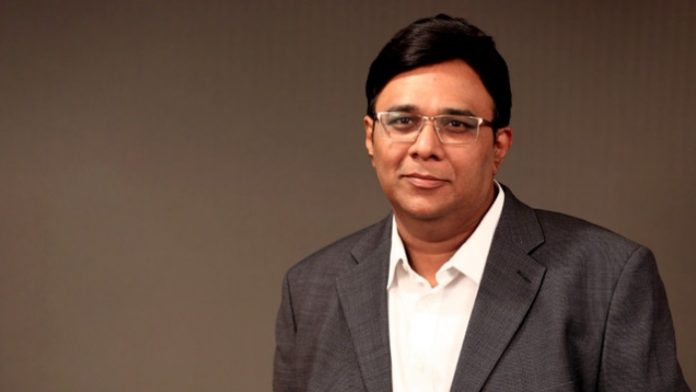
Rendezvous with Kaustubh Sonalkar Group President – Human Resource, Essar | CEO – Essar Foundation | CEO – ECSLLP
Kaustubh Sonalkar is Group President – Human Resource, Essar, CEO – ECSLLP and CEO – Essar Foundation since January 2018. In a career spanning over two decades, Kaustubh has held key positions at Future Group India and PwC as Chief People Officer and Partner (Executive Director) respectively.
Prior to these stints, he was associated with Essar for about a decade and rose up the ranks to the position of Senior Vice President and Head Human Resource. He has also had a short yet significant stint with the United Nations. Kaustubh has a keen interest in cricket, cinema, music and art. Recently, he published his own book titled ‘Fetch Your Own Coffee’ through Penguin Random House.
Q. How do you see the business expectations from HR especially in the Manufacturing industry in the next couple of months?
All businesses expect HR to bring people together for a common objective. However, the pandemic has enforced a change in the way people get together, changing the very landscape HR functions on. The pace of HR’s ever-evolving role has fastened at an unprecedented rate due to the pandemic-led disruption. Hence HR functions, especially in the manufacturing sector, ensure a work-environment transition keeping the optimum balance of employee safety vs Physical/Virtual office space vs business continuance & efficiency.
Technology becomes a critical factor in such scenarios, and I truly believe that HR’s role has never been more crucial as it is today in these times. Talking about the pandemic’s economic impact on the manufacturing sector, in particular, it is a given that the sector has faced a massive blow. While the government has been quite successful in reviving the sector, there is still scope for high growth and employment opportunities in the months ahead.
In the new normal, accelerated technological solutions and optimisation will be critical in the manufacturing industry, and HR is being called upon to implement digitised solutions for enhanced productivity and processes. Right from transitioning the workforce into a more digital-savvy one, leveraging digital tools for supporting online skill development, e-recruitment to e- employee engagement, the onus lies on HR to ensure an upgraded workforce. HR is, undoubtedly, bound to take centre stage in the months to come.
Q. What will be the impact of these business expectations on HR Budget 2020-21?
HR’s topmost priority is to balance people and business continuance for ensuring sustained business services. Hence in the current circumstances, the HR budget has to take into account investments in infrastructure that ensures workplace safety, emergency response, Covid-19 related care and support to the employees and their family, and WFH support. The budget must also include engagement and training initiatives that not just help associates to adjust and adapt to the new technology and processes put in place but also establishes a long term health and wellness roadmap that reassures, motivates and builds trust with the organisation’s workforce. Employee wellbeing is going to grab the spotlight in the upcoming HR Budget.
Q. How do you see the top HR priorities for HR people in the new age work world?
Organisational design, change management, and leadership diversity have always been important, but have become top HR priorities since the pandemic. As HR operations transition from a reactive to a proactive under the new normal, all HRs need to address the workforce’s response and adaptability to unprecedented change. Resilience building, skill advancement, competency development, as well as talent redeployment will be game-changers in the corporate world ahead of us.
Q. How are you prioritizing upskilling for employees to help them keep up in a rapidly changing environment?
Pandemic or no pandemic, Essar has always taken upskilling seriously by providing an enriched career experience, customised for its varied talent pools. Even amid the pandemic, our L&D and HR-IT teams have strived towards making our workforce future-ready by providing a plethora of e-learning opportunities. The pandemic has ushered in new business models and new ways of working that urge an employee to take on tasks that s/he may not specialise in but could do with training.
With cross-functionality being the need of the hour, the mid-senior management understands that upskilling is an absolute necessity, and is supportive of letting employees allocate training time to develop a skill that’s going to benefit her/him in the long run. Also, we understand that mental well-being is a function of upskilling – the more opportunities for learning you provide employees, the more valued they are bound to feel, and the more productive they will be.
Q. What is the hiring strategy at Essar Group? What are your plans to onboard new employees?
Essar believes in attracting a talent pool that’s entrepreneurial, progressive, and synergistic of our ethos of ‘Creating Value’. The pandemic did impact business but Essar has quickly adjusted and adapted to ensure the business continuance which in turn ensured that talent-hiring continued despite the constrains. In 2020, Essar has hired at both leadership levels, mid-management levels, and developed talent through its cadre building programmes like the Executive Leadership Programme, the Business Leadership Programme, Management Traineeship, & College Internships.
In fact, amid the pandemic, we have renewed our focus on corporate governance, compliance, and risk management processes with the appointment of experienced and talented senior leaders. Essar plans to continue going that extra mile in grooming and onboarding new talent through benchmarked talent practices, gamified L&D workshops, mentoring programmes, and effective employee engagement channels especially focusing on mental wellbeing.
Q. Any concluding remarks?
Every successful company has a set of values that determine the behaviour of its business and people. In such unprecedented times, these values may waver. In my view, the onus lies on HR leaders to steer the organisation such that the very values inherent to the organisation determines its success.
Thank you, Kaustubh!








